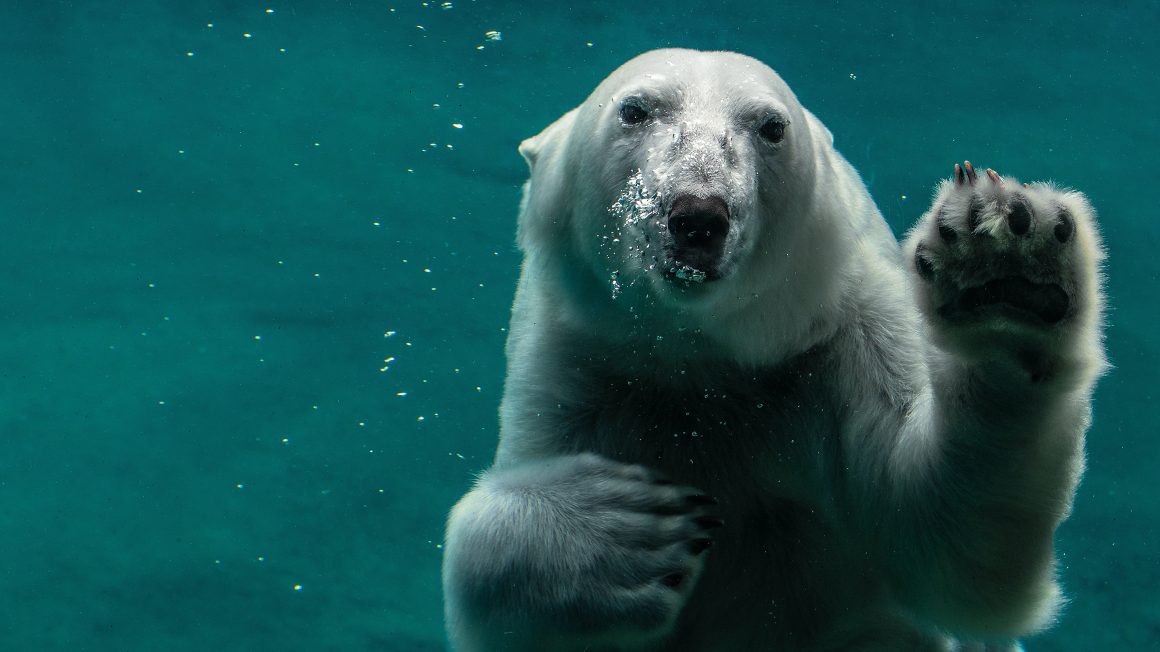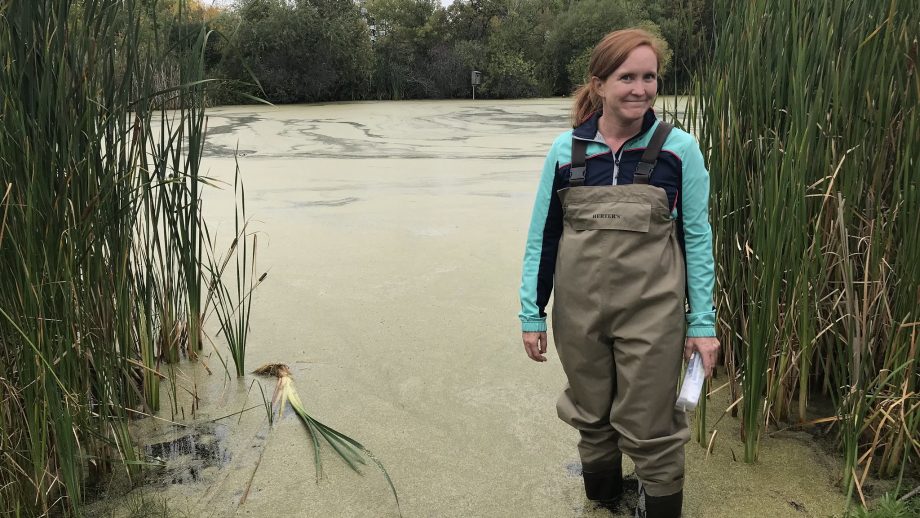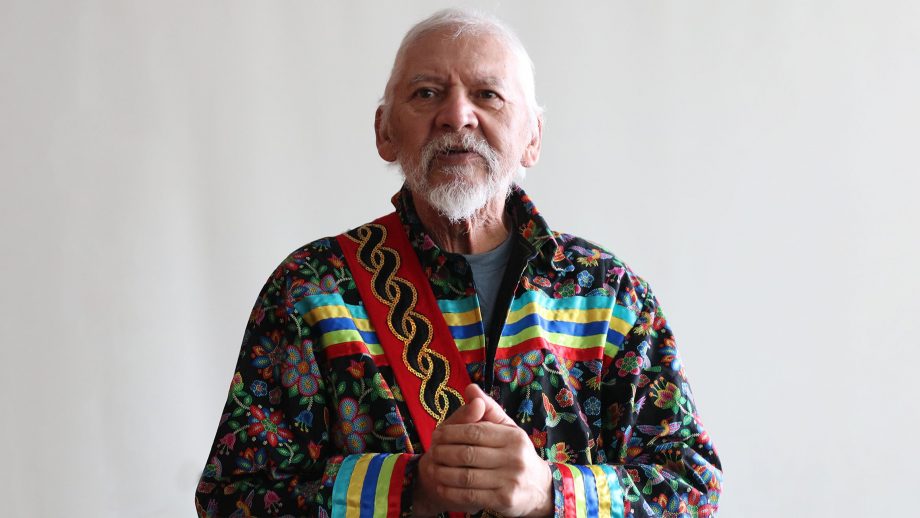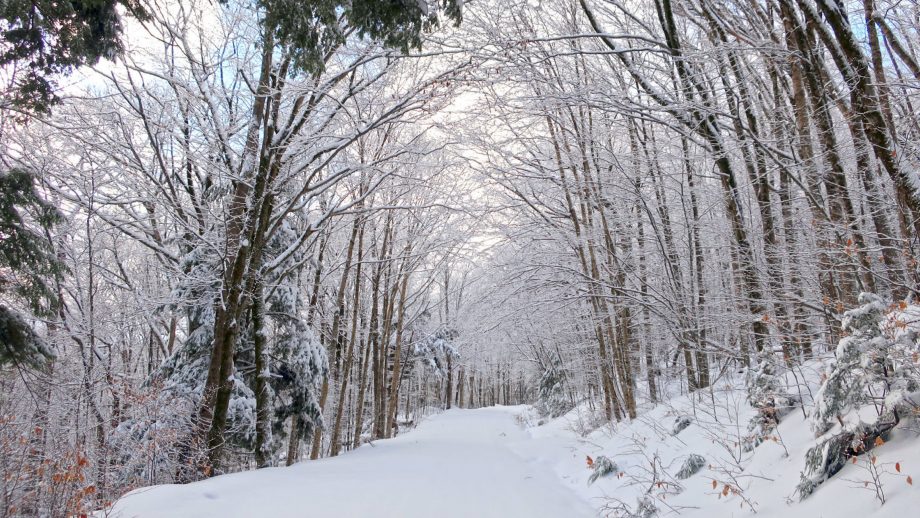Canada’s north is warming at three times the global rate. This is threatening the livelihoods and food security of the Inuit people as well as the ecosystems including the lives of Arctic animals, like the polar bear.
A research trio from the UWinnipeg Collegiate led by geographer and UWinnipeg’s ‘climate guy’, Dr. Danny Blair, are sounding the alarm bells in a paper entitled, Not Cool: On the Loss of Cold Weather in the Canadian Arctic, that has been accepted for publication in the journal Atmosphere-Ocean.
Quite honestly, the students inspired me. Without their enthusiasm and interest, this project would not have been done.
Danny Blair
The focus of the paper is on the loss of cold in the region, rather than the increasing warmth as is more typical in a study about ‘global warming’. The reason for this is that cold is a very important aspect of the Arctic‘s climate; it has a profound influence on its landscape, its flora and fauna, and the lifestyle, culture, economy, health and well-being of the people who call the Arctic home. The paper also discusses some of the implications of the loss of cold.
Blair and the Collegiate team of Amy Mann, Halah Mhanni, and Safia Soussi designed the project together. The trio downloaded and assessed weather data from Environment and Climate Change Canada websites and selected the time frame for the study period. They also created a literature review, wrote and edited material for each section of the paper, and helped Blair design the graphs and maps.
Matthew Loxley from UWinnipeg’s Praire Climate Centre provided the team with the climate model projection data that was extracted from the Climate Atlas of Canada.
Blair did the statistical analysis and the students provided advice and comments as needed.
“Quite honestly, the students inspired me. Without their enthusiasm and interest, this project would not have been done,” said Blair. “We had good data, a unique approach, and interesting results that did not appear to be published anywhere else. I realized that we had something special and decided to submit it for publication in Atmosphere-Ocean,a peer-reviewed Canadian journal.”
Collegiate teacher Jennifer Janzen coordinated the project with Blair and, over many months, worked with the students while they conducted their research.
“Jennifer is a remarkably dedicated teacher,” said Blair.
The research team met weekly, including through the summer months, to complete the research and write the paper.
‘What makes this exceptional is the students did the research for the sake of research,” said Janzen. “This was not for credit nor was it an assignment. They dedicated hundreds of hours of researching and planning since October of 2019.”
Janzen’s ultimate goal in this project has been to collaborate with the University and introduce keen students to research from a university perspective.
“The Collegiate has many bright and ambitious students who want to challenge themselves and learn at a higher level,” noted Janzen. “I have really enjoyed facilitating this educational exchange. I can’t thank Dr. Danny Blair enough for his friendly, helpful and inspiring work, and more than anything, his desire to encourage students on to greater things.”
The trio’s perspective
Mann, Mhanni, and Soussi are interested in the Arctic region and the devastating effects of climate change that makes this region exceptionally vulnerable. Their research has solidified their commitment to fighting climate change and encouraging others to live a sustainable life style.
Amy Mann
“I got involved because I was interested in the Arctic region politically and environmentally,” said Mann.
The project has influenced her in numerous ways. Her findings has made her more conscious about how her actions affect residents of the Arctic which has inspired her to live a more sustainable lifestyle. She also learned how climate change affects people in the Arctic and the importance of cold weather to the region.
Mann also learned that research involves spending a lot of time organizing data. This experience has helped solidify her interest in conducting research as a career and studying geography at university.
Halah Mhanni
Mhanni got involved in this project since climate change has always been one of her passions. She jumped at the opportunity to better educate herself and learn more about climate change.
“Usually, when climate change is addressed, we discuss the gain of heat and overlook the loss of cold,” said Mhanni. “Our research was based on exploring the loss of cold as a crucial approach in better understanding climate change and ensuring people in the Arctic have their voices heard. ”
Working alongside her team this past year, Mhanni explored the importance of cold weather to communities in the Arctic and ecosystems. The process has made her realize how important it is to approach ideas from a distinct perspective.
“I learned about how residents of the Arctic use cold to thrive, and how the loss of cold results in communities in the Arctic losing their traditional ways of life,” said Mhanni.
Safia Soussi
Soussi has always been interested in the North of Canada. During this project she learned more about the Arctic, its climate, and about the research process.
“This project has made me more mindful of my carbon footprint,” said Soussi. “When being told the effects of climate change through third party sources it’s difficult to really see the full picture. Whereas looking at it yourself firsthand, and seeing the effects is completely different and puts things more into perspective.”







